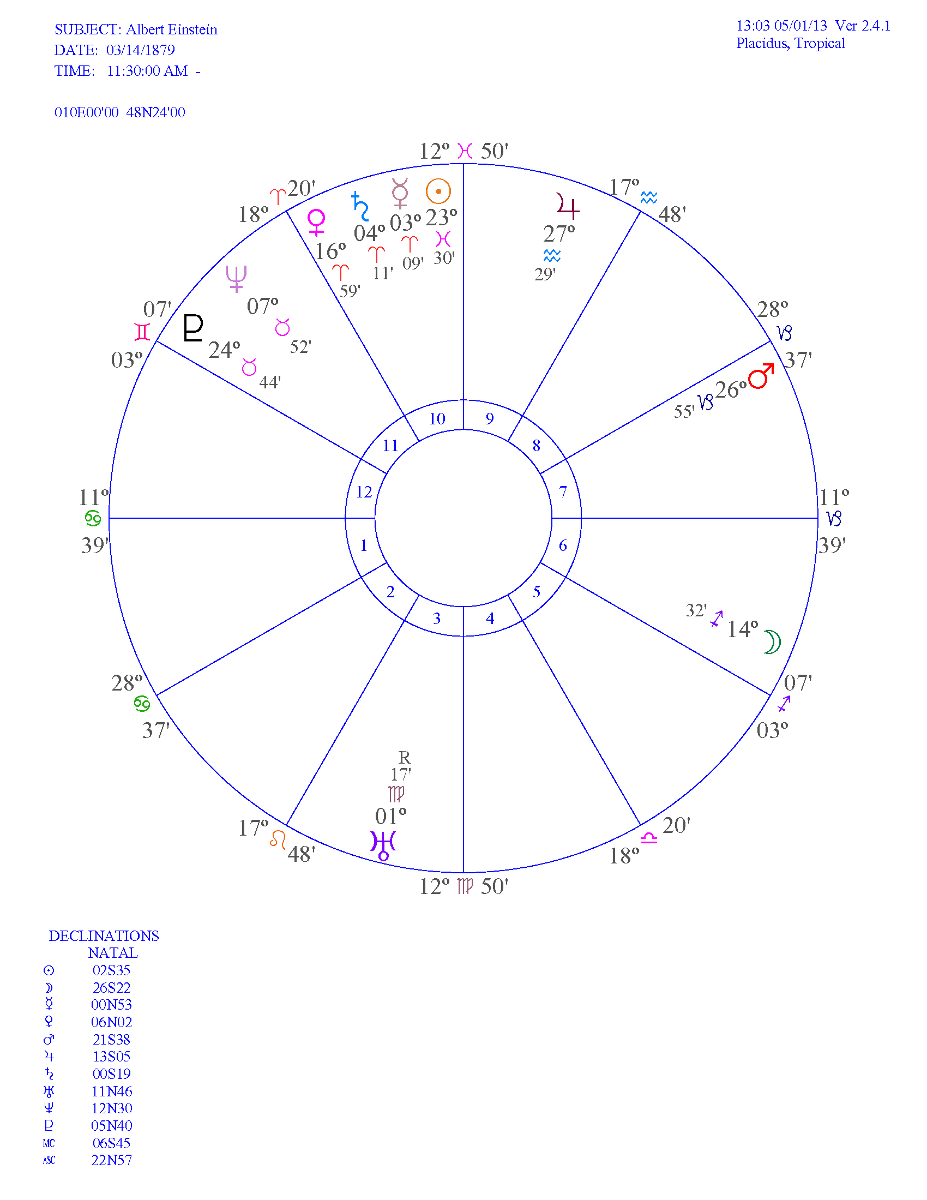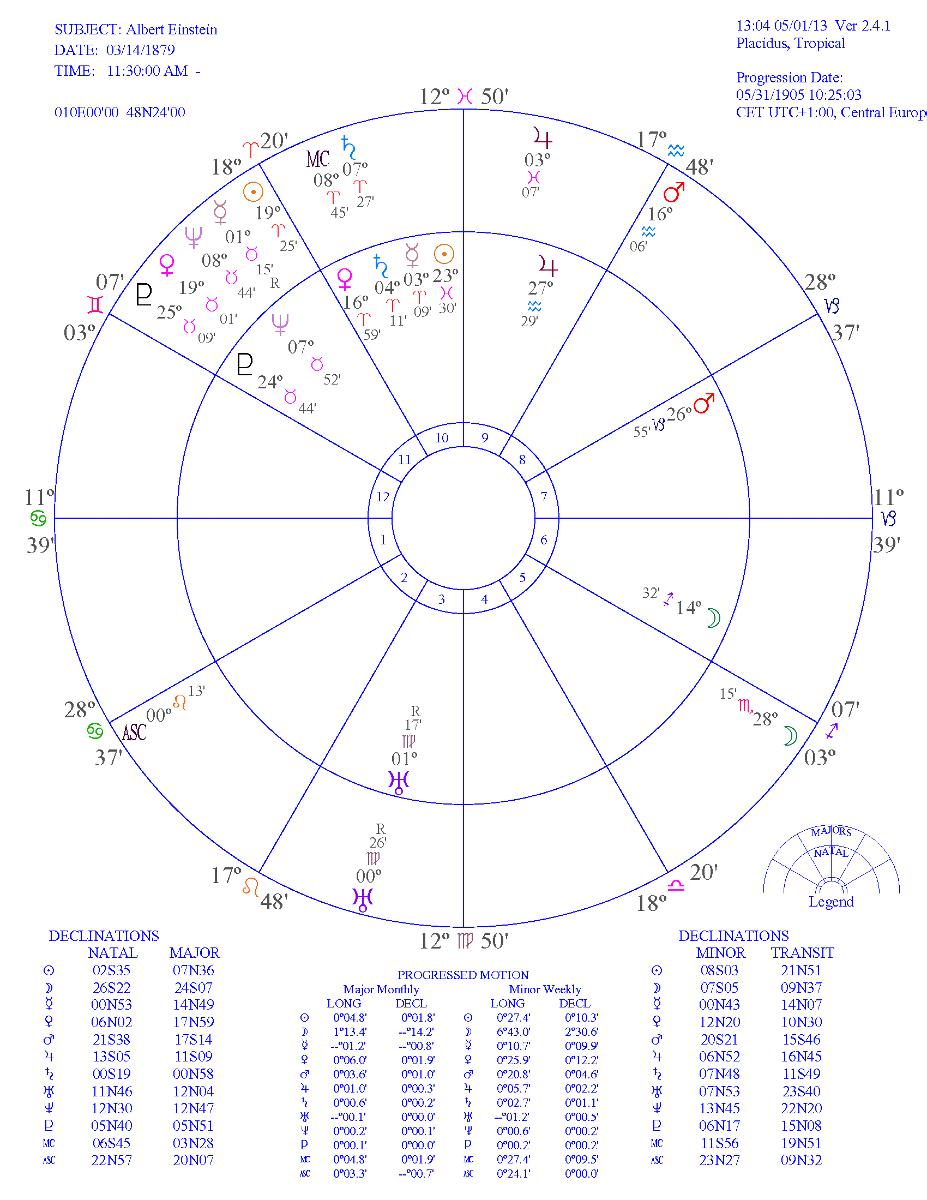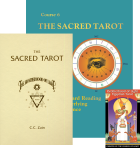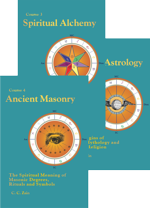|
|
Spiritual Meditations and Exercises Brotherhood of Light Lessons: Course Books on Astrology, Alchemy and Tarot
For Email Marketing you can trust
|
Albert Einstein — Physicist and Pacifistby DW Sutton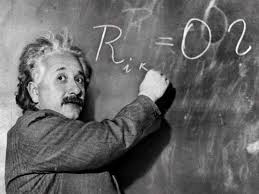
Subheadings: His Life and Times Einstein’s Birthchart and Astrology Code Einstein’s Aptitude Profile Einstein’s Attitude Profile Einstein’s Chart Progressed to May 31, 1905 Einstein and Astrology — A Comment by Elbert Benjamine In May 1905 Albert Einstein wrote a paper that showed how the existence of atoms could be verified by jiggling microscopic particles in a glass of water. This allowed scientists to count atoms by looking through a microscope. In June 1905 he introduced relativity — a theory of time, distance, mass and energy. He then set the speed of light as the universal speed limit and showed that distance and time, rather than being absolutes, were affected by one’s motion. Then in September 1905, he added his famous equation E=mc2 onto the theory. The equation explains that the energy of a body equals its mass times the speed of light squared. Einstein’s discoveries have become the foundation of Aquarian Age physics and 2005 was designated the international Year of Physics by The United Nations. It commemorated the 100th anniversary of Einstein’s ‘year of wonders’. Six years earlier, on December 31, 1999 Time recognized Albert Einstein as Person of the 20th-Century. Albert Einstein inspires wonder and mystery. His private and public lives have been thoroughly scrutinized in order to understand who he was, but a truly authentic explanation only emerges when the character mapped by his birthchart is factored in. This character and its conditioning by experience and external circumstances all merged to produce and create the life of Albert Einstein. His Life and Times
Albert Einstein was born when the planetary pattern in the sky closely resembled the thought-structure of his unconscious soul-mind. This occurred at Ulm, Germany (10E00; 48N30) on March 14, 1879 at 11.30am. The time of birth is recorded on his birth registration, but it won’t be precise. In Germany at the time birth times were rounded off to the nearest quarter hour. His precise birth time would be some time between 11.23 and 11.37am. This means his birthchart and its mathematical profile won’t be 100% accurate. Albert’s mother was the dominant influence on his early life. She was musically inclined and encouraged his interest in the violin and classical composers. His father was an engineer. Albert received a formal education but was easily bored with conventional subjects. At 15 he refused to move with his family to northern Italy, quit prep school (because of its militaristic leaning), and renounced his German citizenship. Later he entered the Zurich Polytechnic, where he met his future wife, Mileva Maric. In 1902 he began work as a patent-office clerk at the Swiss patent office in Berne; and in 1903 he married Mileva. Their marriage produced two sons and there are reports of a daughter born prior to the marriage. In 1905 Albert Einstein experienced an intellectual discoverfest. That year his inner and outer-world environments synchronized in a eureka moment and he published his theory of relativity and his famous equation E=mc2. In 1909 he attained a full time academic post at the university in Zurich and in 1916 proposed his general theory of relativity. In 1919, after three years of wrangling, he and Mileva divorced and he married his cousin, Elsa. In 1922 he won the Nobel Prize in Physics. In 1933, recognizing the threat posed by Hitter, he emigrated to Princeton, N.J. In 1936 his wife, Elsa, died — he never remarried; and in 1939 he wrote to President Roosevelt urging him to develop the atom bomb. (He later considered this letter one of his greatest mistakes.) Following World War 11 he became more outspoken. He campaigned for a ban on nuclear weaponry, denounced McCarthyism and rejected bigotry and racism Albert Einstein was a physicist and pacifist — an outspoken and political man. He was subject to savage verbal attacks and death threats not only for his political views on pacifism and Zionism but also for his scientific ones. He was a very controversial figure. His private papers reveal an unsettled private life. He was warm-hearted and cold, doting and indifferent — a difficult partner — and when the emotions got too intense he withdrew into the safety of his shell (Cancer personality). He was very emotional and a soft touch for any worthy cause. He had humane and democratic instincts and a straight moral sense typical of Pisces — the sign that yearns for peace and brotherly love. He also played the violin — an enthusiastic, amateur musician Einstein got pleasure from solving mysterious puzzles — that time and space could be warped, that mass and energy were interchangeable. He quoted Kant, ‘The eternal mystery of the world is its incomprehensibility.’ (It takes something mightier than rational thought to comprehend great mysteries.) And he had great misgivings. He lamented: ‘The release of atomic power has changed everything except our way of thinking…the solution to this problem lies in the heart of mankind. If only I had known I would have become a watchmaker.’ And a week before his death he agreed that his name should head a manifesto urging all nations to give up nuclear weapons. Einstein died in his sleep on April 18, 1955. Before his body was cremated Dr Thomas Harvey, a Princeton Hospital pathologist, took his brain. Recently it has been probed and studied by Canadian researchers who identified certain unique features that they consider explain his mental greatness. This supposes that his intelligence and genius were grounded in his biology. To do what he did Einstein had to escape his personal world of dreary, stifling emotions and enter a world of calm intellectual contemplation and (with the Sun in Pisces and Cancer rising) he was a very emotional man. He had to create the environmental conditions that allowed his intellectual urge to make an inquiry into time and space and to intellectually interpret the true situation. Einstein claimed that his supreme objective was the ‘perception of this world by thought (Mercury), leaving out everything that is subjective (Moon).’ He also commented that ‘one of the strongest motives that lead men to art and science is to escape from everyday life (Moon), with its painful crudity and hopeless dreariness, from the fetters of one’s own ever-shifting desires’. He admitted an inability to control his own unconscious impulses, and a need to escape the realities of his own consciousness into the world of objective perceptions and thought, but he never posed an inquiry into his own psyche. He refused to have his mind explored by a Freudian analyst. His (unconscious) mental world, the life he lived and the events he experienced were all a mystery to him, but his birthchart and Hermetic Astrology unravel and reveal the mystery. Einstein’s Birthchart and Astrology Code
The astrology code pictured in Einstein’s birthchart profiles the thought-structure and thought-cell activity of his unconscious soul-mind — his character. His character profile and life story were written in the stars and like all human souls his life, aptitudes and achievements were all character-specific. The astrodyne power of the Sun marks for the strength of the unconscious impulse for power and significance — the power urge. The astrodyne power of Mercury marks for the strength of the unconscious desire for mental expression — the intellectual urge. And these two planets dominate Albert Einstein’s birthchart. Their dominance indicates that he was driven by a powerful desire to attain significance through his mental perceptions and reasoning powers. He was an intellectual superstar. Saturn, the planet of abstruse thinking conjunction Mercury added that extra something and he was a deep and profound thinker driven by pure intellect and grinding thought rather than intuition or ESP. His intellectual discoveries were the result of profound thought. (Uranus, the intuition planet, and Neptune, the genius ESP planet, are both weak reducing their role in his intellectual work.) Mercury is high in discord so it wasn’t always easy — and he did make mistakes — like that letter to FDR. The chart’s outstanding feature is the Sun, Mercury, Saturn conjunction. It marks for confidence, intellectual power and systems thinking — for ideas with practical power — and his thought was applied to practical things like bombs and rockets! The Sun-Mercury conjunction was in house 10 (honor and public recognition) and his fame rests upon his intellectual achievements. With the Sun dominant Einstein was driven by a powerful urge for approval and attention and a vigorous sense of purpose. It provided the confidence and self-assurance to overcome the fear of ridicule and timidity that often hampers the Cancer personality. He was moderate rather than extreme, a conformist rather than a radical and he played by the rules even though the dominant Aries was indifferent to convention. The Sun-Saturn conjunction made him suspicious of authority. He had a powerful desire to discover what was really going on (Mercury), and he mobilized his vital energy (Sun) to put in a tremendous intellectual effort (Saturn). This aspect provided endurance and persistence. It marked for a capacity to work long and hard to reach his intellectual and other goals. He strove to create a safe and secure (Saturn) universe, yet the times in which he lived were far from safe. Saturn was the worst, most discordant planet in his chart, and he was a man of many worries, regrets and disappointments. Mercury in the first decanate of Aries codes for an intellectual front-runner — a pioneer of scientific thought — but restless Mercury in impulsive Aries marks for ever-shifting mental desires and unconscious impulses that are difficult to control. With his ascendant in the second decanate of Cancer — it moved there at 11.22.05am — he was guided and impressed by like-minded souls on the astral plane. This decanate also marks for an emotional struggle with sensual desires, as well as a struggle to overcome the limitations imposed by death. With the Sun in Pisces, a prominent Venus and Venus trine the Moon (the most harmonious aspect in his chart) Einstein was a pacifist. After physics came peace. Pisces has a deep moral sense and Venus and Pisces both yearn for peace and harmony. Yet, with Mercury prominent he was a very controversial figure. Being a true intellectual he was financial naïve — you can’t be good at everything — and he was absent-minded about everyday affairs. The weak Moon codes for little interest in daily and domestic life-matters. Mars the planet of strife, antagonism, hatred and violent opposition was in house 7 (open enmity) and the unconscious thought-cell activity it codes for attracted strife, criticism and death-threats. In Germany he was a target of hatred and his pacifism antagonized the hawks. House 7 (marriage) is harmonious, but with Mars and Saturn there his marital relations were subject to prolonged wrangling (Mars) and hopeless dreariness (Saturn). Mercury and Mars are the markers for mathematics. When prominent they give an aptitude for figures and in Einstein’s chart they both have above average power. Their sextile aspect provided an educational opportunity to develop his mathematical aptitudes. Saturn, the planet of abstruse thinking, conjunction Mercury allowed him to handle abstract mathematical formulas. Uranus, the planet of original ides, in house 3 influenced his studies and gave an original trend to his thinking and intellectual pursuits. The scientific Age of Aquarius required revolutionary new thinkers and Einstein fitted the bill. Physics is concerned with the material structure of matter. It tries to discover the secrets of matter — atoms, protons and neutrons — and now quarks and strings. Einstein’s systematic thought processes (Saturn conjunction Mercury and Sun) made sense of the data with pure thought. He was devoted to constancy and abhorred chaos. The prominent Saturn codes for disappointment and regret and he dreamed of producing a unified field theory, a series of equations that would establish an underlying link between the forces of gravity and electromagnetism, but he failed. House 11 — the role and influence of his friends and supporters — was a powerful influence in his life. With Pluto and Neptune there his friends could be coercive and deceptive: And with its cusp ruler, violent Mars, in house 7 his friends could become open enemies. The non-prominent Moon, cusp ruler of house 1 (health) in house 6 (illness) formed a friction (semisquare) aspect with Mars and he suffered bad eyesight. (Moon-Mars discord marks for eye problems.) But any tendency towards fluctuating ill-health (Moon in house 6) was offset by the enormous amount of vital energy (Sun and the front pituitary gland) that was flowing through his veins. Albert Einstein was a pioneering thinker, and in the age of braininess, IQ, smart thinking and rational intelligence he was one of the best. And with birthchart Sun, Mercury and Saturn in the house of acclaim and public recognition his intellectual achievements earned him the ultimate accolade — Person of the 20th-Century. Einstein’s Aptitude Profile
The Sun dominated Albert Einstein’s birthchart. Mercury, Pluto, Venus, Saturn and Mars had above average power. And all these planets represented aptitudes that could be turned into ability with proper training. Self-control and vitality — Sun dominant Clerical work — Mercury prominent System and order — Saturn prominent Deep concentration — Mercury conjunction Saturn Mathematics — Mercury and Mars prominent and sextile Aptitude for understanding atomic and cosmic sources of energy — Pluto prominent Artistic and musical appreciation — Venus prominent Einstein’s Attitude Profile
Albert Einstein was a true leader in thought and his intellectual zest and enthusiasm naturally sought new worlds to conquer. He was ambitious, enthusiastic, optimistic, controversial and political — an intellectual front runner who used creative brain power and original thought to achieve his goals. He was also inclined to bite off more than he could chew and to rush into controversy before assessing all the facts. (Dominant sign Aries with Mercury in the first decanate.) Einstein was sympathetic, idealistic and a lover of mystery. He claimed ‘the most beautiful experience we can have is the mysterious…Whoever does not know it and can no longer wonder, no longer marvel, is as good as dead.’ He was profoundly upset by injustice, yearned for universal brotherhood and craved peace on Earth and good will to all men. He was also inclined to worry and to magnify the importance of actual or threatened adversity. (Sun in Pisces.) The mathematical genius had a tenacious and moody personality. He was very sensitive to his environment and closely attached to his home and family. He was very emotional, easily upset by unpleasant news, inclined to fancy slight when it was not intended and craved sympathy. A tendency to fear ridicule was neutralized somewhat by the dominant Sun and Aries. He also had a passion for sailing. (Cancer on the ascendant.) Einstein was ambitious for fame, loyal to his beliefs, quick to defend the rights and others and charitable of their shortcomings. He was mentally frank and candid — even a little boisterous. He was inclined towards philosophy and religion. Einstein to Max Born: ‘You believe in a God who plays dice, and I believe in complete law and order (Saturn), in a world which objectively exists.’ (Moon in Sagittarius). Einstein’s Chart Progressed to May 31, 1905
In 1905 Einstein’s experienced a eureka moment. With progressed Mercury trine Uranus his mind experienced a flow of original and disruptive ideas and his thinking lit up unknown regions. That year he got the idea that everything in the universe was a repository of energy. His famous E=mc2 formula theorized that converting a small amount of mass would release an enormous amount of energy. During 1905 progressed Mercury, planet of intellectual activity in house 11, formed a luck (trine) aspect with birthchart Uranus, planet of original ideas and intuition in house 3; and his conscious thinking became highly original and inventive. Mercury provided the rational thought and Uranus provided the originality, inventiveness and independence and he did it all alone. But it just didn’t happen in 1905 From December 1889 to April 1901 progressed Jupiter formed an opposition aspect with natal and progressed Uranus keeping his originality and study thought-cells constantly energized. Then in March 1897 progressed Mercury moved to form a (luck) trine aspect with progressed Uranus. This aspect turned on his intellectual urge (Mercury), his desire for original thinking (Uranus) and his desire to study and write (Uranus in house 3.) He was 18 years old. The aspect was in orb till October 1909 — a total of 11 years and 5 months. Mercury turned retrograde in December 1902 at 1 Taurus 34R and the aspect peaked on four occasions — on November 2, 1898, September 14, 1900, April 7, 1905 and October 21, 1907. The stimulation to the Mercury and Uranus thought-cells was prolonged, intense and harmonious. The aspect had a peak power of 17.96 astrodynes and a peak harmony of 17.96 harmodynes and the luck supported intellectual success. Then in 1915 when progressed Sun moved to form a luck (trine) trine aspect with Uranus his original thought-processes were again stimulated and he expanded his Restricted Theory of Relativity to the General Theory of Relativity. Einstein and Astrology — A Comment by Elbert Benjamine
According to Einstein’s theory, time comes to standstill at the velocity of light, and a moving object decreases in length as it increases in velocity, until at the velocity of light it ceases to have physical dimensions. These conclusions furnish an explanation, otherwise lacking, of the observed effect of planetary energies upon human life and destiny, and of extrasensory perception (ESP) and a wide variety of recorded authentic psychic phenomena. Experiments with telepathy prove that distance and space are not factors, and experiments with ESP prove that the ability to visualize in detail events that have not happened (precognition) seems slightly less rare than telepathy itself. Yet if space and time relations on the inner-plane where the unconscious mind functions are markedly different, it can be comprehended how on the inner-plane an individual can look down the probability line of events and see them happening, even though they will not transpire on Earth for a number of years. And if these relations on the inner-plane, from which planetary energies influence the unconscious mind, and human destiny, are different, it can be comprehended how planetary movements that occur in one day in the sky, can compensate over a period of a year in influencing the thought-cell activity taking place within the unconscious mind through which events are attracted. Students of astrology owe Albert Einstein a debt of gratitude for the things he discovered give them the very information they need to explain how progressed aspects work. ******************************** The questions are now getting very profound, but discovering the mysteries of matter and explaining what is happening is not quite the same as explaining why it happens and how its happens. The mind of the discoverer is not as clever as the mind of the originator and the human mind that can explain the laws of physics is not quite the same as the intelligence that originally devised the laws. So science simple discovers and explains what God originally thought and planned. The theory of everything is a single theory that seeks to unite forces, particles, space and time, but it won’t explain consciousness and the astrological forces that influence its development. In 1905 Albert Einstein experienced a eureka moment. He inquired into a problem and got the right answer. His environmental circumstances allowed his intellectual urge the scope and imagination to make an inquiry into time and space and his intellectual thought-cells grasped time and space rationally. But the man who solved this great mystery was ignorant of his own consciousness, and the astrological energies that guided his intellectual development and played the key role in his spectacular discoveries. He knew nothing about the astrology code that provided him with a blueprint of experience and the astrological timing factors that stimulated his unconscious thought-cell activity. Einstein — the great thinker — experienced his own consciousness but had no idea as to why he was who he was. So science, in an attempt to explain his greatness, studied his brain. And it concluded that his particular brand of genius was due to an unusually large inferior parietal lobe — a center of mathematical thought and spatial imagery — and shorter connections between the frontal and temporal lobes. But Albert Einstein’s astrology code mapped a potential and these unique features of his brain were only a physical replica of his astral brain (Mercury). He was born with skills and abilities and by developing his one unique and very special talent he lived up to his highest potential. The secret of his success was not in his brain — it was in his astrology code — and in 1905 the planets got it right and humanity benefited. 
|
|
||||||||||||||||||||||||||||||||||||||||||||
|
||||||||||||||||||||||||||||||||||||||||||||||





